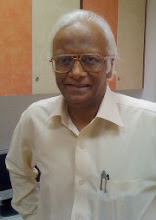
RAJ SHEKHAR JHA
It was not his winning rhetoric but his shaking legs with the children that stole the heart of India. The affable Obama’s radiated warmth and friendship, seldom displayed by Indian politicians. It brought smile on the faces of millions of people across the world, looking for peace and prosperity.
President George Bush tried playing drums during a visit to an African country and found it works and works better and faster.
Now many more presidents and prime ministers visiting India will take to the dance diplomacy but don’t expect Pakistan president Zardari to come and dance with Sonia Gandhi or Manmohan Singh to ease indo-Pak tensions and establish better relationship.
SANJANA SAKSENA
Defining Moment
President Obama considers US-India partnership as “one of the defining relationships” of the 21st century. His just concluded visit proves the point.
Started on a sensitive note, Obama failed to mention Pakistan in his introductory speech from the iconic Taj hotel, the site of the horrific terror attack on 26/11. The victims’ families and survivors were expecting at least a presidential condemnation of the inhuman act. Nevertheless, the issue came up when a Xaviers student asked him a question.
By landing in India’s financial capital, Mumbai, the president sent out the right signal that the visit is more of business than protocol.
PRERN BARUAH
All state visits are great photo-ops and lofty rhetoric. Nevertheless, President Obama came with an entourage of 200 CEOs not for sight-seeing, of course, but to do business with India. That India has emerged as a global business destination is indeed undeniable.
The President sent a strong message to Islamabad when he said terrorists having “safe havens” within its borders is “unacceptable”. He asked Pakistan to bring the terrorists behind the Mumbai attacks to book.
On Obama’s own admission, more agreements were concluded during this visit than any other. But the most important of most all is the nuclear deal and the lifting of the ban on hi-tech imports needed for ISRO, BDL and DRDO.
Juhi chakroborty
Words, Words, Words!
President’s Barack Obama’s stay at the Taj did send out a powerful message to the world. But what India needs is not symbolism or the kind of rhetoric excellence that he displayed in Parliament but firm action to force Pakistan to drop its terror agenda.
The President’s remark that Mumbai is a symbol of the incredible energy and optimism that defines India is indeed a great tribute. And by interacting with children of four orphanages, the US first lady, Michelle Obama, touched on a very sensitive chord. She communicated the importance of education to countries competing for prosperity.
MONIKA TRIPATHY
ACT, OBAMA, ACT
It is heart-warming to see that the Obamas prize good relations with India. Notwithstanding his eloquence in Parliament, his economic policies are skewed against Indians, to create jobs for Americans.
American Presidents are known crowd-charmers. Bill Clinton and President Eisenhower and now Obama mesmerized Indian crowds. John F. Kennedy, the most admired of American Presidents, was shot dead before he could visit India. But Presidential charisma alone will not help build up good relations. To say the least, Obama’s actions must match his eloquence.
KASHIKA SAXENA
REALITY BYTE
Political pundits read too much into the much-hyped Obama’s three-day visit to India. When Obama declared India a world power and the fastest growing economy, it was music to Indian ears. And when he declared the US support to India’s claim for the UNSC seat, it touched a chord of our national pride.
But remember while India and the US are ideological allies, the US and China are business allies. The fact remains that it took two years for him to visit India after assuming office which shows where India stands in the scheme of things.SANYA AHUJA
THE NAKED TRUTH
The US President came to India determined to take something back home – jobs for jobless Americans. India and the US signed a $10 billion trade deal, meant to create 50,000 jobs. It would require 300,000 new jobs a month to make a dent on unemployment at the rate of 10% annually.
Issues like Kashmir, terrorism, UNSC are mere talking points, or metaphorically the fig leaves to cover the naked truth.



















.jpg)




